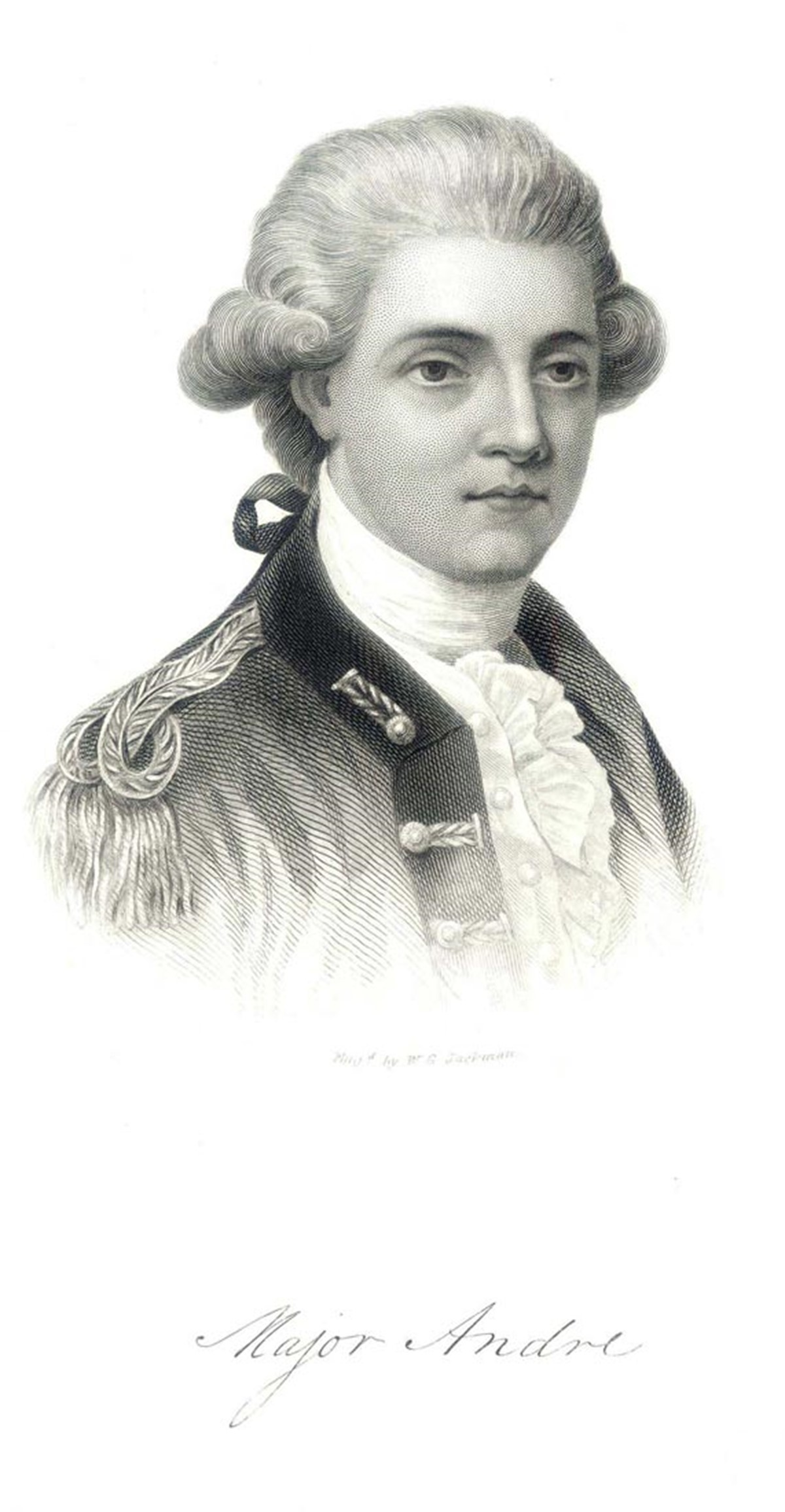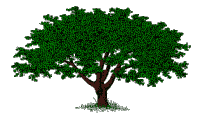The British Spy, The American Traitor
Our Uncle and Two Cousins

In September of 1780, the British spy John André negotiated the surrender of the fort at West Point with it’s commander Benedict Arnold. Capture of this fort would have given the British control of the Hudson River cutting off New England from the rest of the colonies. Arnold gave André six pages of instructions detailing how the British could take the fort. Returning to British lines, André wearing civilian clothes, was stopped by three members of the militia that he assumed were British loyalists because one of them was wearing a Hessian soldiers’s overcoat. He told them he was a British officer and must not be detained. Searching him they found the suspicious papers in his boot and escorted André to the Continental Army headquarters.
At the trial the jury of six major generals and nine brigadier generals found André guilty of being behind American lines “under a feigned name and in a disguised habit.”. He was hanged as a spy at Tappan, New York on 2 October 1780. André had many talents including the ability to draw. The day before his execution he created a pen and ink portrait of himself.

Although initially buried beneath the gallows where he was hanged in Tappan, New York, in 1821 the Duke of York requested his remains be returned to England. He was reburied in the Nave of Westminster Abbey. Among those buried nearby are Charles Darwin, Stephen Hawking, Sir Isaac Newton and Clement Attlee.(https://en.wikipedia.org/wiki/Burials_and_memorials_in_Westminster_Abbey#Nave)
Our Uncle and two Cousins
Caleb Cope was born in 1736, a 5th great-granduncle, knew John André. Another cousin wrote some words about him in her diary upon learning of his trial and execution.
In September of 1775 the Contenental Army invaded Canada. With the fall of Fort Saint-Jean in November John André was captured and transported to Landcaster, Pennsylvania where he was held as a prisoner of war at the home of our great-granduncle Caleb Cope.
Peggy Chew (1760– 1824)
The Following is From The Archives of Maryland (Biographical Series)
Margaret Oswald Chew, wife of Maryland's fifth governor John Eager Howard, was born on December 16, 1760 at "Cliveden," the Chew family estate in Philadelphia. Margaret, or "Peggy" as she was affectionately called by friends and family, was one of nine children born to Benjamin and Elizabeth Oswald Chew. Peggy's siblings were Benjamin, Jr., Joseph, Juliana, Henrietta, Sophia, Maria, Harriet, and Catherine. Benjamin Chew already had five daughters from his previous marriage to Mary Galloway: Mary, Anna Maria, Elizabeth, Sarah, and Henrietta.1 Peggy's father held numerous prestigious positions including State Attorney General, Chief Justice of the Supreme Court of Pennsylvania, and President of the High Court of Errors and Appeals. As a result, the Chew family basked in the limelight of eighteenth-century Philadelphia society.2
The Chew sisters took full advantage of their social position. Peggy and her siblings "enlivened the dances and drawing rooms of Philadelphia;" furthermore, they became particular favorites of General George Washington, who treated them "as if they were his own children."3 Mr. Joseph Shippen, a social commentator of the period, thought "Mary and Elizabeth the most beautiful" but confirmed that "Peggy was the charmer."4 At the age of seventeen, Peggy was described as "a slim brunette, gentle, very feminine, her long, fine-boned face almost too delicately made."5
As proof of her abundant charms, Peggy was frequently surrounded by many attentive suitors. Although she eventually married Maryland's future chief executive, one of her most famous suitors was Major John André.6 André was a most impassioned admirer of Miss Chew. He claimed to be her "Knight of the Burning Rose," and as a sign of his devotion, he staged a grand ball on May 18, 1778 and chose Peggy Chew as his escort.7 For the ball, called "The Meschinaza," the men dressed in court costumes from the reign of Henry IV while the women appeared as Turkish maidens.8 André later presented Peggy with a souvenir manuscript of the evening which he personally designed and rendered.9
Perhaps Peggy Chew would have married the dashing Major John André, but fate stepped in when he was ordered away from Philadelphia. Upon leaving Cliveden, he delivered these lines of poetry to Miss Chew:
If at the close of war and strife
My destiny once more
Should in the various paths of life
Conduct me to this shore;
Should British Banner guard the land
And faction be restrained
And Cliveden's mansion peaceful stand,
No more with blood be stained,
Say, wilt thou then receive again
And welcome to thy sight
The Youth who bids with stifled pain
This sad-farewell tonight?10


Homepage | Database | John Test | Narratives | Documents | History